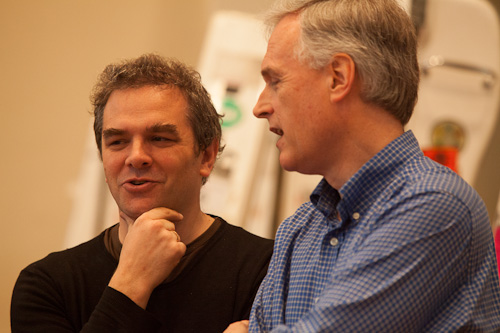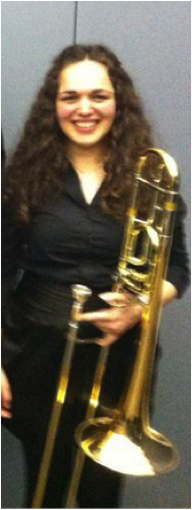Laudan Nooshin
Between November 2011 and May 2012, a partnership between the Community and Education Department at the London Philharmonic Orchestra (LPO) and the Centre for Music Studies at City University London introduced Iranian music, culture and story-telling to key stage 2 school children in South London. Jointly funded by the LPO, City University London and the Higher Education Innovation Fund, the project brought together composer David Bruce, storyteller Sally Pomme Clayton, Iranian musicians Arash Moradi and Fariborz Kiani, members of City University’s Middle Eastern Music Ensemble and other City students, and the Bridge Project music education programme. The project was led by myself and Patrick Bailey, head of the Community and Education Department at the LPO.
The project centred around the Iranian epic Shahnameh – ‘Book of Kings’, written by Abolqasem Ferdowsi (940-1020 CE) – and specifically the story of Prince Zal: born albino and abandoned as a baby, Zal is found and raised by the magical and wise Simorgh bird; many years later he is reconciled with his family and returns triumphantly as the new king. With its many topical themes of tolerance and forgiveness, this story proved a wonderfully rich source for use with British school children. The project began in the autumn with workshops in two South London primary schools: Jessop and Ashmole schools. The children were introduced to the melodies and rhythms of Iranian music and to the story of Prince Zal and the Simorgh, as retold in English by storyteller Sally Pomme Clayton. Through the workshops, the children created musical ideas of their own to portray characters such as the Simorgh, or the magical mountain where she lives, ideas which were later used by composer David Bruce for his orchestral piece. Also involved in the workshop were City music students – violinists Rachel Hobby and Beverley Cooper, and Christina Michael and Lucasz Kapraz on Iranian daff (frame drum) – and violin teachers from the Bridge Project, an organisation which provides instrumental teaching in socio-economically disadvantaged areas of South London, and aims to encourage the children, their families and their communities to develop a life-long appreciation for classical music. City composer Alice Jeffreys shadowed composer David Bruce.
Following the Autumn workshops, David Bruce wrote the specially- commissioned piece ‘Prince Zal and the Simorgh’, which was premiered at the Royal Festival Hall on London’s South Bank on 23rd May as part of the LPO’s Bright Sparks schools concerts series. Sally Pomme Clayton narrated the story, accompanied by the London Philharmonic Orchestra, conducted by David Angus; Arash Moradi on setār and Kurdish tanbur and Fariborz Kiani on percussion; members of the City University Middle Eastern Music Ensemble on daff frame drums – Andrew Allen, Timothy Doyle, Christos Seas, Emma Langley and Jonathon Porter; and fifty key stage 1 violinists from Jessop and Ashmole Schools with their Bridge Project teachers. Each of the two concerts was attended by 2,500 key stage 2 children and their teachers. The central theme of the concert was telling stories through music, and as well as David Bruce’s piece the children were treated to extracts from Peter and the Wolf by Prokofiev, Swan Lake by Tchaikovsky and a very lively and enjoyable sing-along ‘I Wanna be Like You’ from The Jungle Book film, music by Richard and Robert Sherman. For many of the children, this was their first experience of a live orchestral concert and there was an air of great excitement. Presenter Andrew Barclay did a wonderful job of introducing the music, including elements of audience participation between pieces.
In the lead up to the concerts in the spring, I wrote a teacher’s pack for use in the classroom introducing pupils to Iran – the country, and its traditions of music, story telling, poetry and visual arts. The pack also included ideas and suggestions for practical classroom activities in preparation for the forthcoming concerts. Some of the teachers also participated in preparatory workshops run by the LPO Education and Community Department and led by myself and Patrick Bailey.
Several teachers gave very positive feedback on the concerts and other activities associated with the project. One of them explained, ‘In the week before the concert we used the story in our literacy lessons, describing the Simorgh, using drama and role play to investigate character and writing diary entries for Prince Zal from the different stages of the story. The children were really engaged with the story and with the drama and produced some really good writing. It exposed children to a new culture. Their listening skills were developed by using Prince Zal’s [musical] theme to understand how a character changes over the course of a story. And the concert also inspired the children in their own music-making … we also used the drumming rhythmic patterns (groups of 2 and 3 notes) from the resources pack in a mathematics lesson, working out which numbers could or could not be made by adding strings of 2s and 3s’. In another school, children painted their own pictures of the Simorgh, taking inspiration from the beautifully detailed miniature paintings of the Shahnameh stories found in old manuscripts, an example of which was included in the teacher’s pack
All in all, this was a very worthwhile and valuable project. We hope that there will be opportunities to extend this project in the future, both through school workshops and further performances of the piece, in the UK and abroad. There is also discussion about a possible children’s picture book with the accompanying music. In the current international climate, it’s hard to overstate the importance of projects like this which aim to promote greater cultural tolerance and understanding, and in particular a more positive image and understanding of Iran – its people, culture and history – than pupils might normally experience through the media and other kinds of representation. And what better way to do it than through music!
For further information on the project, see the links below:
http://www.lpo.org.uk/education/schools_brightsparks.html
http://www.lpo.org.uk/education/
Sally Pomme Clayton’s blog:
http://sallypommeclayton.com/blog/?p=777
David Bruce’s website:
http://www.davidbruce.net/works/prince-zal-simorgh.asp
The Bridge Project
http://www.londonmusicmasters.org/about/bridge-project/

‘Prince Zal and the Simorgh’ workshop, Autumn 2011. Young violinists at Ashmole School, Lambeth, with City University music student Beverley Cooper in the background.

Premiere of ‘Prince Zal and the Simorgh’ by David Bruce, LPO Bright Sparks Schools Concert, Royal Festival Hall, 23rd May 2012.

Picture of the Simorgh by Oscar Murphy of Lee Manor School, South London.

Composer David Bruce and conductor David Angus in rehearsal. Photo: Neil Matthews.
 Larissa Zetlein has been very busy performing trombone. To start the summer off she successfully got the 1st trombone job in the Central Band of the Royal British Legion, which provides a large amount of performance opportunities throughout the year. This summer with the Central Band she played at the Winter Gardens in Margate; Centre Court at Wimbledon for both the male and female finals; a week in Eastbourne at the famous Bandstand; a Long Service Ceremony for the Met Police; at the Theatre Royale in Windsor for the Windsor Festival, and even a wedding with Embassy Big Band (all musicians from Central Band).
Larissa Zetlein has been very busy performing trombone. To start the summer off she successfully got the 1st trombone job in the Central Band of the Royal British Legion, which provides a large amount of performance opportunities throughout the year. This summer with the Central Band she played at the Winter Gardens in Margate; Centre Court at Wimbledon for both the male and female finals; a week in Eastbourne at the famous Bandstand; a Long Service Ceremony for the Met Police; at the Theatre Royale in Windsor for the Windsor Festival, and even a wedding with Embassy Big Band (all musicians from Central Band).



